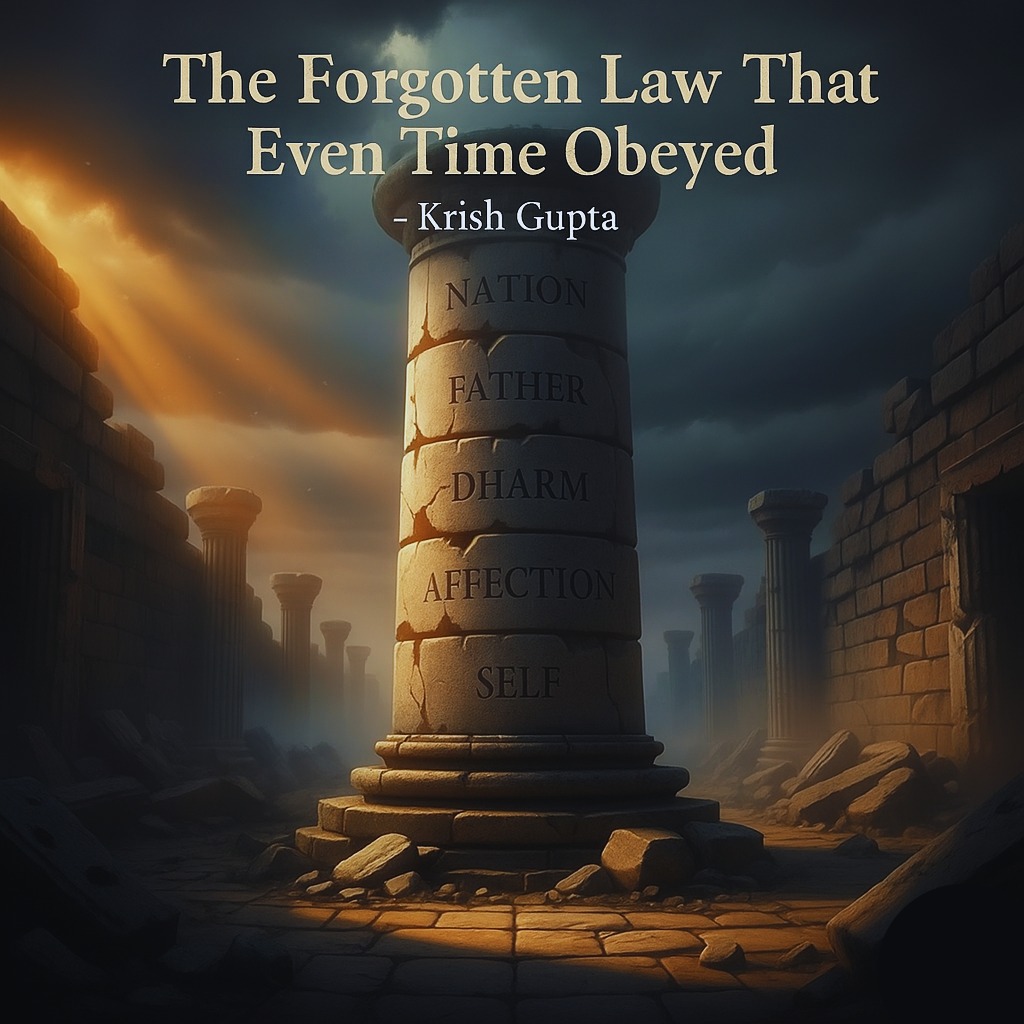When the Metro Stopped, So Did I
By Krish Gupta (BMS’27)
The metro doors slid shut, trapping a crowd inside a capsule of silence and motion. The air smelled faintly of perfume, metal, and morning anxiety. People stood pressed against each other, their eyes glued to their screens, their thoughts buried under deadlines and digital noise. The train began its familiar rhythm, a pulse that echoed through every tired commuter.
It was one of those days when everything looked too familiar. The man beside me in a wrinkled shirt, clutching his bag as if it carried his peace of mind. The woman near the pole, her face powdered into calmness but her eyes betraying exhaustion. A young couple standing too close, pretending to laugh, both checking their phones between smiles.
Every face had a story, but none seemed willing to live it.
My phone had died earlier, leaving me alone with reality. At first, it felt awkward, almost intrusive, to simply look around. People avoid each other’s eyes now, as if connection were contagious. But then I started observing. The compartment looked like a theater where everyone was both actor and audience, performing busy lives while silently watching others do the same.
As the train plunged into the tunnel, the windows transformed into reflective surfaces. Faces, ghostly and illuminated by the faint blue light of phones, drifted across the dark glass. The whole scene possessed a lifeless elegance, giving the impression of an underwater metro. It was a captivating yet unsettling sight.
This, I thought, is what modern life looks like, “a cauldron of loneliness” that simmers quietly under the hum of movement. We are closer than ever, yet we have never felt more alone. Families text each other from different rooms, friends speak in emojis, lovers count responses instead of moments. People breathe the same air but live in separate worlds.
The train slowed down for the next station. A few passengers stepped off, and others entered with the same practiced rhythm. It all happened in silence, a choreography rehearsed a thousand times.
That was when I noticed him, a boy, maybe sixteen, sitting in the corner seat with a small sketchbook on his lap. He wasn’t wearing earphones; he wasn’t holding a phone. He was drawing. His eyes flickered between the page and the people, his pencil moving swiftly as if it knew exactly what to capture.
It felt unusual, almost wrong, to see someone still creating in a world obsessed with consuming.
Another man yawned loudly. A woman opened her front camera, checked her hair, then frowned at the angle. A student typed furiously on his laptop, his earphones blasting some muffled beat. A little girl tugged her father’s sleeve for attention, but he was too busy replying to a message that probably wasn’t urgent.
The train jolted slightly and then stopped. Not at a station, but somewhere between two. The lights flickered, then steadied. A few groans rippled through the crowd. Someone muttered about maintenance. Someone else sighed about being late. The announcement system stayed quiet.
The boy kept drawing.
And then something strange happened.
The murmurs died out. The tapping stopped. No one moved. No one breathed. It was as if time itself had been unplugged. The compartment was frozen in perfect stillness. The man with the bag remained mid-sigh. The woman’s phone light glowed against her motionless hand. The little girl’s eyes were fixed upward, her arm hanging in the air.
Only the boy moved, his pencil dancing across the page.
I tried to speak, but my voice wouldn’t come out. My heart pounded, or maybe it didn’t. The silence pressed against my ears, thick and absolute.
The boy lifted his head slowly and looked at me. His eyes were calm, almost knowing, the way old people look at something they’ve seen too many times before. Then, without a word, he turned his sketchbook around.
On the page was the entire metro compartment. Every detail. Every passenger. The man with the tie, the woman with the lunchbox, the student with his reflection, even me sitting right there. Each individual was rendered in charcoal, their forms captured and held suspended in time. Everyone except the boy who was drawing.
The pencil slipped from his hand. The light flickered again. The announcement voice returned, steady and polite as ever. People blinked. The hum of the train resumed. Motion returned to the world.
I looked toward the corner. The boy was gone. Only an empty seat remained, the sketchbook missing, the faint trace of pencil dust on the floor.
For a long moment, I stared at the place where he had been. The crowd had gone back to its rituals, ‘scrolling, typing, pretending, surviving’. The illusion of life had restarted. Maybe he was never there. Maybe I had imagined him, a mirage of stillness in a moving world.
Outside the window, the city flashed by flyovers, billboards, towers pretending to touch the sky. Everyone inside the train was still connected, but no one was present. The train sped forward, carrying hundreds of lives chasing time, all too afraid to stop and see themselves.
Maybe that’s what he wanted to show me. That stillness has disappeared. That silence is extinct. That people are moving faster than ever yet arriving nowhere.
The announcement voice spoke again. Another station. Another pause. Another round of faces getting on and off. I sat there, unsure if the world had moved on or if it had already stopped long ago.
The compartment was full again. Screens lit up like city lights. Laughter echoed without warmth. The hum returned to its rhythm.
And as the train raced into another tunnel, I saw my reflection in the window, ‘pale, thoughtful, and still’. Maybe for a second, I looked like him.
The world moved, but I didn’t.
And in that brief moment, when the metro stopped, so did I.




Comments